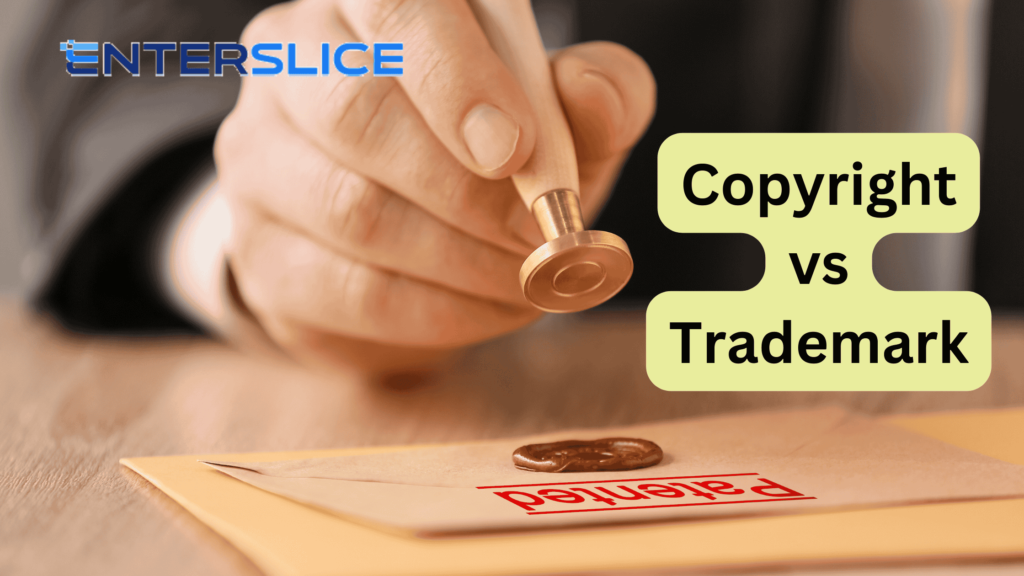In today’s digital world, protecting your intellectual property is more important than ever. Two of the most common forms of protection are copyright registration and trademarks. While both serve the purpose of safeguarding your creative works and brand identity, they operate in different realms and have distinct implications. In this blog, we will explore the differences between registration of copyright and trademarks, helping you understand which protection suits your needs.
What is Copyright?
Copyright is a legal protection granted to the creators of original works, such as books, music, art, and software. It gives the creator exclusive rights to use, reproduce, and distribute their work. Copyright is automatic upon the creation of a work; however, registering it provides additional legal benefits.
Benefits of Copyright Registration
- Legal Evidence: Registration serves as prima facie evidence in court, proving your ownership and the validity of your work.
- Public Record: It places your work on a public record, deterring potential infringers.
- Ability to Sue for Damages: Only registered works can sue for statutory damages and attorney fees in case of infringement.
What is a Trademark?
A trademark, on the other hand, is a symbol, word, or phrase that identifies and distinguishes the source of goods or services of one party from those of others. Trademarks can include logos, brand names, and slogans. Unlike copyright, trademarks protect brand identity rather than creative works.
Benefits of Trademark Registration
- Exclusive Rights: Registration grants you exclusive rights to use your trademark in connection with the goods or services listed.
- Brand Recognition: It helps build your brand identity and prevents confusion among consumers.
- Nationwide Protection: Registered trademarks receive protection across the country, regardless of where they are used.
Key Differences Between Copyright Registration and Trademarks
1. Subject Matter
- Copyright protects original works of authorship, such as literary, musical, and artistic works.
- Trademarks protect symbols, names, and slogans used to identify goods and services.
2. Registration Process
- Copyright Registration: You can register your copyright through the relevant copyright office in your country, usually by filling out a form and paying a fee. The process is generally straightforward and can often be done online.
- Trademark Registration: Trademark registration can be more complex. It typically involves a comprehensive search to ensure your trademark doesn’t conflict with existing trademarks, followed by an application process that may include legal scrutiny.
3. Duration of Protection
- Copyright lasts for the life of the creator plus 70 years in many jurisdictions, after which the work enters the public domain.
- Trademarks can last indefinitely as long as they are in use and renewal fees are paid.
4. Scope of Protection
- Copyright covers the expression of ideas, not the ideas themselves. For instance, while you can copyright a book, you cannot copyright the underlying story concept.
- Trademarks protect brand identity and consumer recognition. They ensure that consumers can identify the source of goods or services, preventing others from using a similar mark that could confuse consumers.
5. Enforcement
- Copyright holders must monitor the use of their work and take action against unauthorized use. The copyright holder can sue for damages if someone infringes on their copyright.
- Trademark owners must also enforce their rights. If they don’t, they risk losing their trademark rights due to “abandonment” or “genericide,” where the trademark becomes a generic term for the product.
When to Use Copyright Registration vs. Trademark
Understanding when to seek copyright registration or trademark protection depends on what you are trying to protect:
- Choose Copyright Registration if you have created an original work, such as a book, song, artwork, or software, and want to protect the expression of that work.
- Choose Trademark Registration if you have a brand name, logo, or slogan that identifies your goods or services and you want to protect your brand identity and prevent others from using a similar mark.
Common Misconceptions
1. “Copyright and Trademark Are the Same”
Many people mistakenly believe that copyright and trademark are interchangeable. While both protect intellectual property, they do so in different ways and for different types of assets.
2. “You Don’t Need to Register to Have Rights”
While copyright protection is automatic upon creation, registering your copyright is essential for legal benefits. Similarly, while trademark rights can arise from use, formal registration strengthens those rights and provides broader protections.
Conclusion
In summary, both copyright registration and trademark registration play crucial roles in protecting intellectual property. Copyright focuses on safeguarding creative works, while trademarks protect brand identity. Understanding the differences between the two can help you make informed decisions about how to protect your assets effectively. Whether you are an artist, a business owner, or a writer, knowing when and how to utilize these protections will ultimately help you safeguard your creative and commercial interests.
Also, read:
What is a Private Securities Agency (PSARA License)?
